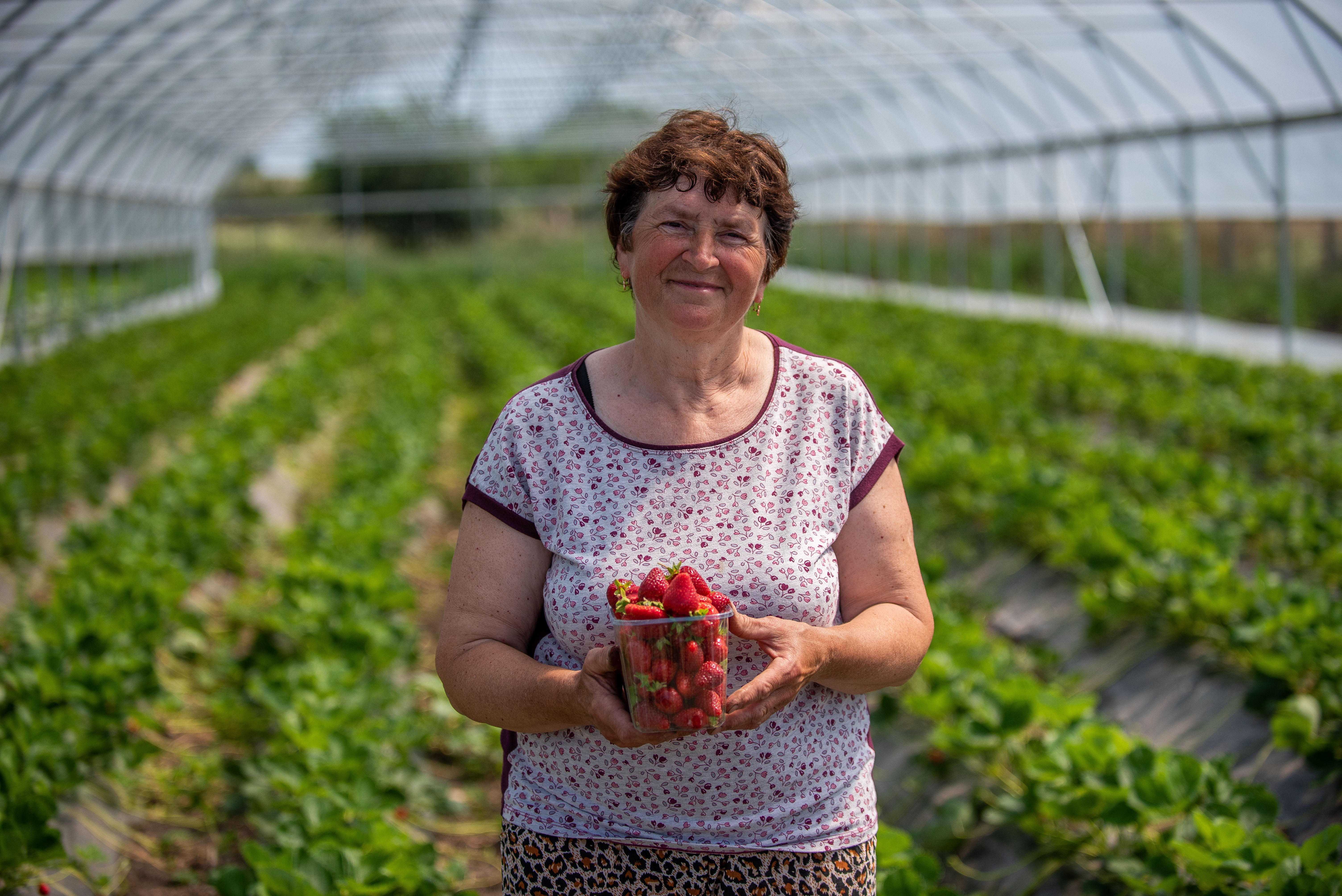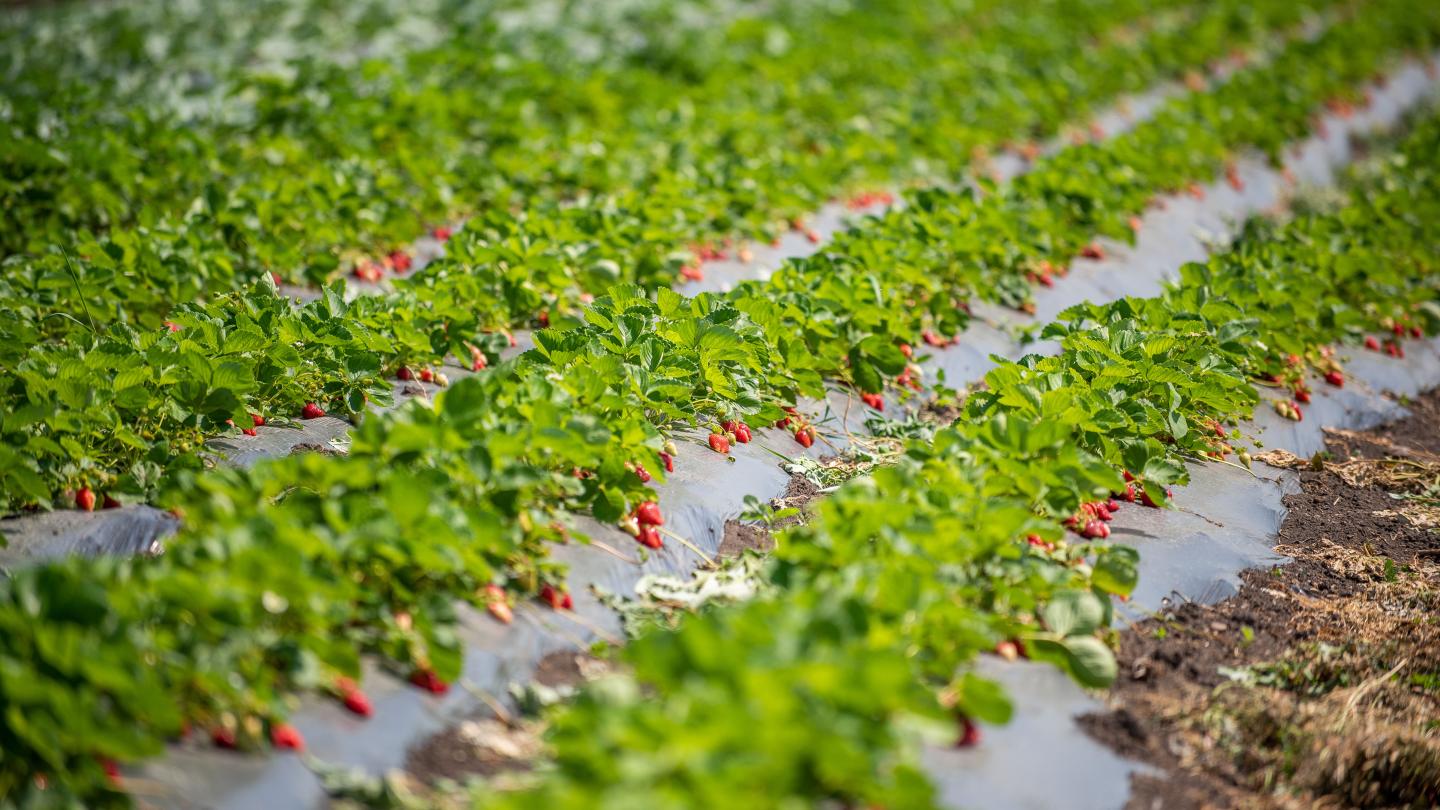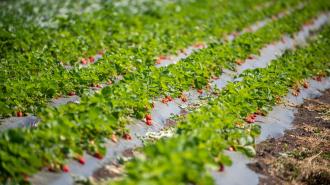Women in rural Moldova seek equal income opportunities
July 29, 2024

Nadejda Dobrova, farmer from Parcani village
“I had to take care of six cows. I used to get up when it was still dark outside to collect the milk, which had to be sold as soon as possible to avoid it spoiling and I would work till midnight making cheese. It is quite exhausting work at the age of 60.”Nadejda Dobrova
In 2021, Nadejda, who lives in Parcani village, decided to start growing strawberries in a greenhouse to make her life less taxing. “I have grown strawberries before as well, but only in open fields and the harvests were often destroyed by rains”.
Making a living in rural Moldova is an uphill battle. Women like Nadejda who live in villages, are often more affected by poverty than their peers living in cities. This harsh reality is often due to limited income opportunities and access to education. Less than half of the women living in rural areas of Moldova have a higher education, compared to two-thirds of urban women. Just over half of them are formally employed, compared to more than 90 percent of women in urban areas. Almost half of them work in agriculture, often in informal, unpaid roles. And pressured by social norms, they also bear most of the household work and caregiving responsibilities.
But now these women are taking a more proactive role in trying to earn a living. And stories like Nadejda’s are growing. Her move to grow strawberries paid off when she went about trying to set up a greenhouse that seemed unaffordable until she came across an announcement by UNDP and Sweden.
Her business idea and efforts were rewarded with mentoring and financial support, which enabled her in building a greenhouse and importing seedlings. Now, her sweet and aromatic berries, sell like hot cakes.
Still, women comprise only a third of all entrepreneurs in the country and continue to face discriminatory practices fueled by gender stereotypes that limit their access to capital. And caregiving responsibilities that tie them to their homes limit their ability to dedicate time to their business or other career choices – a challenge faced by many women across the world.
Then they must contend with both droughts and floods caused by climate change that have severely affected the agricultural sector, in Moldova, reducing productivity, causing soil erosion and landslides, destroying property, and claiming lives.
The heavy dependence on agriculture and the lack of decent incomes make rural women more vulnerable to climate-related disruptions, often driving them deeper into poverty.
In recent years, the Republic of Moldova has significantly advanced its work on gender equality, leading to a rise in the recent Global Gender Gap Index where Moldova has climbed to 13th place in 2024 from place 35 in 2018. The 2023-2027 National Programme to Accelerate Gender Equality embeds, among others, specific measures to boost women’s economic empowerment, including in rural areas.
But to ensure sustained success and robust and inclusive development outcomes, it must address gender equality and climate change together. This includes:
- Simultaneously enhancing women's access to resources such as financing, education, time, and re-skilling.
- Expanding knowledge of women on climate-resilient practices and ensuring their participation in climate action planning.
- Advancing women's participation in decision-making processes and leadership roles within rural communities.
- And ensuring that infrastructure improvements, public transport and social services are tailored to the needs of rural women.
This is where projects like the "Resilient communities through women empowerment," in Moldova, initiated by UNDP and Sweden are supporting women-led and climate-smart enterprises and households to improve their economic, social, and educational status. And one can draw some important conclusions from its success.
It is crucial to provide women with the right tools and listen to their voices so that they can play an active role in solutions to challenges, especially climate action, to help transform and uplift their communities.
The initiative has provided 130 women in seven districts, access to more sustainable practices and technologies resilient to climate risks, such as, greenhouses, drip irrigation, and renewable energy for food processing. This has led to improvements in their standard of living and made their communities more prosperous.

Zinaida Plămădeală produces organic lettuce year-round in a modern hydroponic greenhouse in the city of Călărași. Thanks to mentoring and an $18,000 grant from Sweden and UNDP, the entrepreneur's vertical farm has become energy independent.

With assistance from Sweden and UNDP, Olga Agapie built five greenhouses for growing organic vegetables and bought a biomass boiler to heat them in the cold season.
Involving women in decision-making and development of local climate resilience strategies has contributed to economic diversification and innovative solutions, to local challenges.
To ensure sustained impact and wider transformation, it is essential to continue nurturing promising local initiatives, so that they can expand across the country, and draw more investment. The National Development Strategy Moldova 2030 which promotes financing programmes for women entrepreneurship is a good start.
Finally, what gets measured gets attention. Insufficient sex-disaggregated data and lack of gender-sensitive budgeting make women in the rural agriculture sector invisible and they are often overlooked, when it comes to national growth investments.
By leveraging the success and lessons learned from the project’s first phase, UNDP, Sweden and Norway will continue to advocate for policy reforms and economic investments that are gender and climate responsive, to address the specific needs and challenges faced by rural women.
Aligning investments with the empowerment and resilience of rural women not only contributes to their socio-economic advancement but also enhances overall community resilience, fosters inclusive growth, and supports sustainable development in Moldova. All these efforts support the country’s ambition on the road towards fulfilling the 2030 Agenda and becoming ready for European Union membership.
Yet, addressing the intertwined challenges of climate change and gender inequality to foster sustainable development in Moldova requires concerted efforts. As they say, it will take a village, requiring the commitment of everyone.

 Locations
Locations












